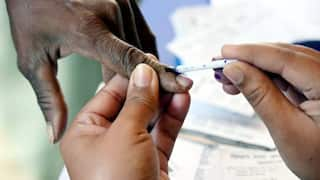Space Industry May Face Biosecurity Threats, Including Invasion Of 'Alien Organisms', Say Scientists. Know Why
Space industry could be at increased risk from biosecurity threats in future, and in the absence of good biosecurity measures, alien organisms may be brought back to Earth by space-faring individuals

New Delhi: The hitherto fictional concept of 'alien organisms' invading Earth may soon become a reality, in the absence of suitable biosecurity measures, scientists have warned in a new study. This is because the space industry is likely to be at an increased risk from biosecurity threats in future, according to researchers from the University of Adelaide.
Biosecurity threats are biological threats that can be harmful to living organisms.
In the study published in the international journal, BioScience, the researchers highlighted the importance of biosecurity measures and called for greater recognition of potential biosecurity risks the space industry could face. In the absence of good biosecurity measures, alien organisms may be brought back to Earth by space-faring individuals, they pointed out.
What Is Space Biosecurity?
Space biosecurity refers to biological threats faced by people on Earth due to space exploration. The transfer of organisms from Earth to space, or forward contamination, and the transfer of organisms from space to Earth, or backward contamination, are associated with space biosecurity.
Biological invasion is defined as the human-assisted spread of organisms into novel environments, in which alien species are a threat to ecosystem sustainability and human well-being.
Risks having a low probability of occurrence but a potential for extreme consequences are at the heart of biosecurity management, Associate Professor Cassey of the University of Adelaide, who is one of the authors of the study, said in a statement by the University of Adelaide.
The researchers, in the study, provided evidence of the spread of organisms by humans to the remotest regions on Earth and the seas, and to space.
Addressing Risk Of Invasive Species From Space Travel
The field of "invasion science", which deals with the causes and consequences of introducing organisms into new environments, could help address the risk of invasive species from space travel, the authors suggested. Islands, lakes, and remote habitats are most susceptible to invasion threats.
Sophisticated protocols for early detection of invasive species, mechanisms for rapid response, and containment procedures to prevent spread of the organisms can help mitigate threats from biological invasions, the study said.
These mechanisms can help prevent biological contamination of extraterrestrial environments from Earth and vice versa.
The timing and frequency of events which lead to the introduction of alien organisms to a particular environment, determine the extent of invasion risks. The least secure human activities which lead to such events must be addressed, the study said.
Traits of the organism, and those of the receiving environment, govern the impacts of biological contaminations, making it difficult to predict the events.
Taxonomic methods, which fail to differentiate between alien and native organisms may undermine early detection methods that are crucial to the prevention of biological invasions.
Dr Casey said it is much cheaper to prevent biological contamination by implementing protocols on Earth than on Mars.
Dr. Cassey and co-author Dr. Andrew Woolnough said Australia, which has some of the best biosecurity in the world, can contribute expertise in the area of invasion science.
The authors noted that invasion biologists are yet to be involved in Committee on Space Research Planetary Protection planning.
A greater collaboration among astrobiologists, invasion biologists, and policymakers could greatly enhance existing international protocols for planetary biosecurity protocols, both for Earth and for extraterrestrial bodies that could contain life, the authors said in the study.





































